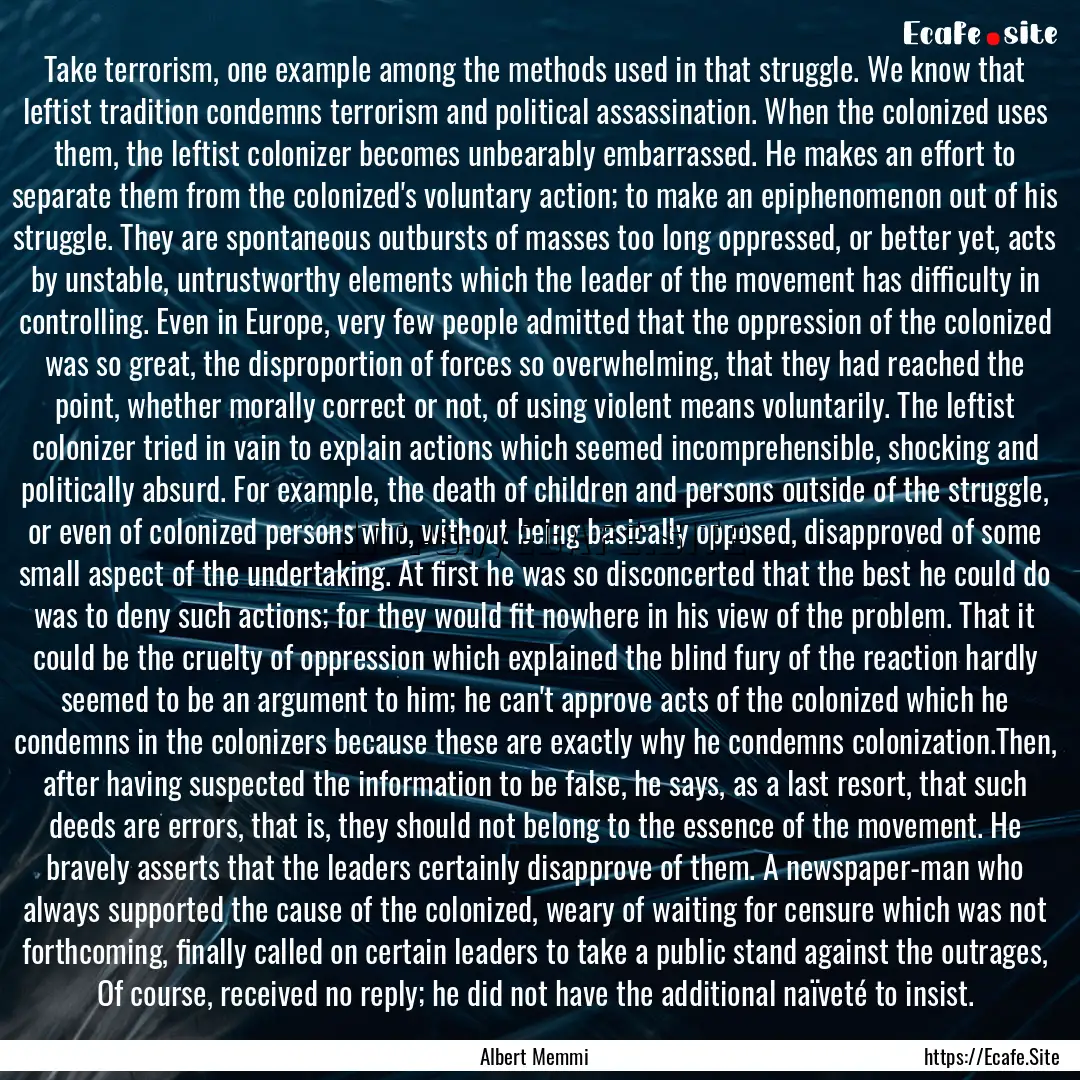
Report, if you have a problem with this page“ Take terrorism, one example among the methods used in that struggle. We know that leftist tradition condemns terrorism and political assassination. When the colonized uses them, the leftist colonizer becomes unbearably embarrassed. He makes an effort to separate them from the colonized's voluntary action; to make an epiphenomenon out of his struggle. They are spontaneous outbursts of masses too long oppressed, or better yet, acts by unstable, untrustworthy elements which the leader of the movement has difficulty in controlling. Even in Europe, very few people admitted that the oppression of the colonized was so great, the disproportion of forces so overwhelming, that they had reached the point, whether morally correct or not, of using violent means voluntarily. The leftist colonizer tried in vain to explain actions which seemed incomprehensible, shocking and politically absurd. For example, the death of children and persons outside of the struggle, or even of colonized persons who, without being basically opposed, disapproved of some small aspect of the undertaking. At first he was so disconcerted that the best he could do was to deny such actions; for they would fit nowhere in his view of the problem. That it could be the cruelty of oppression which explained the blind fury of the reaction hardly seemed to be an argument to him; he can't approve acts of the colonized which he condemns in the colonizers because these are exactly why he condemns colonization.Then, after having suspected the information to be false, he says, as a last resort, that such deeds are errors, that is, they should not belong to the essence of the movement. He bravely asserts that the leaders certainly disapprove of them. A newspaper-man who always supported the cause of the colonized, weary of waiting for censure which was not forthcoming, finally called on certain leaders to take a public stand against the outrages, Of course, received no reply; he did not have the additional naïveté to insist. ”

Albert Memmi
From : The Colonizer and the Colonized



